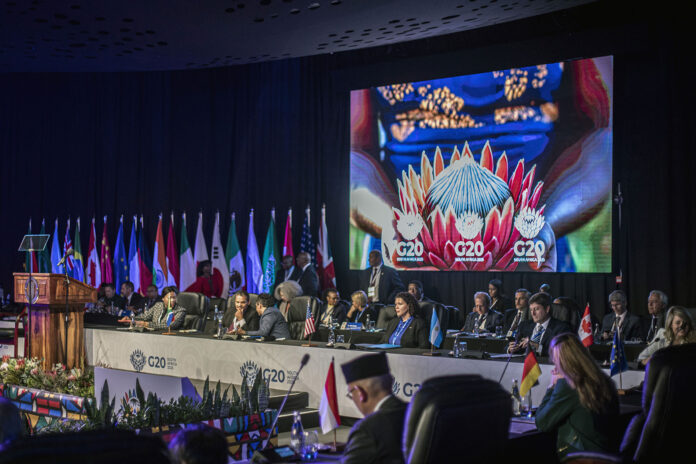This month marks a critical moment for South Africa’s small and medium-sized enterprises (SMEs), with global summits, fiscal shifts, investment announcements, and major retail events all converging in a way that could shape the business environment for next year.
TymeBank group executive for business banking, Miguel da Silva, said the month is filled with developments that SMEs cannot afford to ignore.
He noted that the end of South Africa’s G20 presidency is creating new opportunities for smaller firms, as events such as the Think20 Summit, the Social and B20 Summits, and the G20 Leaders’ Summit draw international visitors to the country.
In sectors including hospitality, accommodation, catering, event management, transport and tourism, the influx of global delegates is expected to boost revenue during an already strong trading period.
“Beyond the immediate transactional benefits, these gatherings offer strategic networking opportunities and international visibility that could yield longer-term export relationships.
“The B20 Summit specifically brings together business leaders and policymakers, creating a conducive environment for SMEs to engage with potential investors, partners, and customers,” said Da Silva.
Regarding the mid-term budget policy statement (MTBPS) delivered by Finance Minister Enoch Godongwana on Wednesday, he said it has introduced a major shift in South Africa’s monetary framework.
Godongwana announced a 3% inflation target with a 1% tolerance band, which Da Silva said could result in lower borrowing costs and improved customer spending over time.
Godongwana also projected that economic growth will reach 1.2% in 2025, more than double 2024’s growth rate, before rising to an average of 1.8% between 2026 and 2028. He further highlighted that “government debt will stabilise in 2025/26 at 77.9% of GDP,” marking the first stabilisation since the global financial crisis.
“Substantial infrastructure investment is planned, and capital expenditure emerges as the fastest-growing category at 7.5% over the medium term.
“The new procurement payments dashboard, launched with the MTBPS, provides greater transparency into government procurement, potentially creating opportunities for SMEs to better understand and access public-sector contracts,” said Da Silva.
On the other hand, the Reserve Bank’s Monetary Policy Committee will deliver its final interest rate decision for 2025 on November 20, and SMEs are bracing for the outcome.
Over the past year, the Bank has cut rates by 125 basis points, bringing the repo rate down to 7% and the prime lending rate to 10.50%.
But Da Silva says the environment has become more complex as inflation has edged up from 3.3% in August to 3.4% in September, and the transition to a lower inflation target adds a new layer of pressure. Global uncertainty and exchange-rate volatility could also influence the Bank’s decision. He advises that SMEs prepare for both possibilities, as the decision will directly affect working capital costs, loan repayments, and growth plans heading into 2026.
Black Friday on November 28 marks the start of the year-end trading season, and last year’s numbers show it matters; retail sales rose nearly 20% in 2024, contributing around R88-billion to the overall economy.
Da Silva warns, however, that SMEs must protect themselves from the increase in fraud and other scams by tightening internal controls, securing payment systems, and training employees to spot suspicious transactions. Protecting customers, he says, is essential to maintaining business trust.
On investment summits, he emphasised that they deliver results. For example, the Western Cape Investment Summit, hosted from November 5 to 7, has committed to creating approximately 45 000 jobs.
More than 1 600 meetings were held across priority sectors, including the green economy, agribusiness, energy, manufacturing and green hydrogen.
Upcoming summits include the African Agri Investment Indaba from November 23 to 26, which will bring together more than 900 stakeholders from across Africa.
Da Silva believes businesses that stay informed, act quickly, and strengthen internal systems will be well-positioned for 2026. This, he says, is the moment for SMEs to sharpen their focus, seize new opportunities and build resilience as one of the busiest economic months of the year unfolds.



